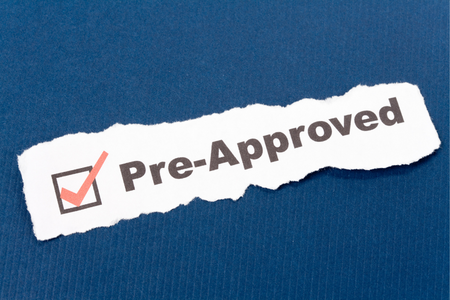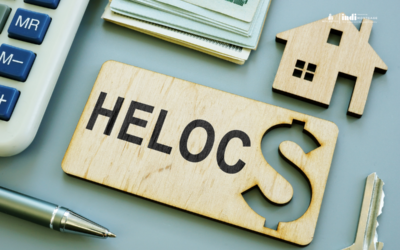Welcome To Our Mortgage Educational Blog About:
What you need to know about Mortgage Pre-Qualification vs Pre-Approval.

Securing a mortgage is a daunting task. Because of that, you can’t easily ascertain whether your mortgage will be fully approved or not.
If you have been asking yourself whether a mortgage pre-approval means you are qualified for a mortgage, the simple answer to it is NO.
Even though the mortgage pre-approval stage is extremely crucial, there is no guarantee that you will get a loan for your intended home purchase.
Here is everything you need to know about the status transition from pre-approved to approved.
Mortgage pre-approval
Ideally, a mortgage pre-approval only means that the lender has done an evaluation of your finances which majorly includes the following documentation:
- Your tax returns for two years
- Stubs payment from the past thirty days which indicate your year-to-date income
- T4 forms from your employer covering a period of two years
- A quarterly statement or rather 60 days, of all asset accounts under your name. This entails your savings along with any investment’s accounts for instance: TFSAs, RRSPs and other investments
- Your residential history for the past two years
- Records for any other real estate holdings
Presenting this paperwork might be a huge pain but securing a pre-approval gives you a head start.
The pre-approval normally includes additional specifics such as interest rates and a term. Lenders guarantee the given interest rate for a duration of 90 – 120 days. It is also during this period that you are provided with information regarding amortization rates and terms.
As great as pre-approvals sound, it is key to remember that they are not an actual mortgage.
With the pre-approval in hand, you can begin house hunting. However, you will still have to go through the formal mortgage application process. On the bright side, the pre-approval expedites things.
There are a couple of limitations that can potentially affect your home purchase.
For starters, in the event that you had been pre-qualified by your lending institution, the pre-approval will no longer be valid if your financial situation changes. What this means is that if any of these occur then your pre-approval no longer holds:
- Taking on an additional loan
- Acquiring a new credit card
- Have a different source of income
- Taxes are not up to date
- Losing your job
- Securing a new job
- Purchasing a brand-new car
Secondly, most lending institutions require appraisals for the properties they are mortgaging. Appraisals not only benefit the lenders but they also serve as an important guide for the many potential home buyers in the market. It ensures that they do not pay more than what the house is worth.
However, there are a few appraisal issues that may put your pre-approved mortgage at risk. These include:
Realization that the appraised value is lower than the sale price
Despite the pre-approved mortgage property value, the mortgage company makes its own evaluation. In a bid to makes this easy, lenders adopt an independent evaluation performed by a licensed appraiser which shows the current market value.
If the appraised value is found to be lower than the sales price, the seller is required to drop the price to level the appraised value, or the other option is the buyer paying the cash difference-The latter is never advisable.
Deferring maintenance on critical repairs
When an appraisal is done, property is evaluated on an “as-is” basis. This means that the property in question reviewed based on its current condition and this does not cover any improvements or repairs that may be done thereafter.
Properties must meet certain minimum standards before a lender can give the green light for loan approval. If any evidence is brought to light showing deferment in maintenance on the property, the mortgage will most likely be declined.
Maintenance issues that are mostly looked out for are:
- Roof repairs
- Broken windowpanes
- Leaking water lines
- Electrical problems
- Malfunctioning heating systems
Habitability concerns
Is the property actually habitable? In case of any structural issues, such as noticeable cracks in the foundation, most lenders will not approve for a loan because such extensive repairs are very costly.
Having said that, if for instance you intend on buying a log cabin or a rural property, which is rare in most cases, there would be no comparable sales to determine the value of the property. This is problematic to the lender and consequentially, it becomes difficult for you to obtain a mortgage even with a pre-approval.
Declining market in the neighbourhood
The appraiser performs an assessment on the real estate market in the neighbourhood by choosing one of three main factors: increasing, stable or declining.
If the appraisal shows that the property is in a neighbourhood that has in the recent past been undergoing declining values over a period of say 12 months, the lender may ask for more money without regard to what the final value will be.
If the borrower does not have sufficient funds for topping up to make the down payment, then the approval for the mortgage could be declined.
The pre-approval stage is only the first step in the mortgage process. The general overview of the process includes:
- Getting your pre-approval for starters
- Finding a property
- Applying for mortgage
- Completing the loan processing
- Go through the underwriting process
- Close on the property
Conclusion
Mortgage pre-approval is important because purchasing a home is a huge financial decision which comes with a lot of commitment. You need to be fully aware of your financial position before you start looking at homes.
By investing time to get pre-approved, you will ultimately be saving yourself from the many pitfalls most first time home buyers fall into.
In as much as the pre-approval letters will play a significant role in the home buying process, it is important for every buyer to understand that the deal is not done.
A pre-approval does not fully guarantee that your mortgage will be approved. That said, if you would wish to inquire more on this topic, don’t hesitate to contact us.
Are you ready to purchase your first home, second home, or a new home? Reach out to me directly or start your application here: www.sandraforscutt.ca/mortgage-application/
Don’t hesitate to contact us with any questions you may have.
Recent Educational Blogs
First Responder Mortgage Program
Jan 2026 | First Responder Mortgage ProgramAt Metro Mortgage Group, we have deep respect for the everyday heroes of our city — the members of the Edmonton Police Service, EMS, and Fire Rescue Services. Your commitment keeps our community safe, often at great personal...
Pros and Cons of a Home Equity Line of Credit (HELOC)
Dec 2025 | Pros and Cons of a Home Equity Line of Credit (HELOC)If you’re a Canadian homeowner, you’ve probably heard friends or family talk about using a home equity line of credit, or HELOC. People often use it to renovate, consolidate debt, or help kids with school...
What the Latest Bank of Canada Rate Cut Means for Canadian Borrowers and Homeowners
Nov 2025 | What Rate Cut Means for Canadian Borrowers and Homeowners On October 29, 2025, the Bank of Canada made headlines by cutting its benchmark policy rate by 25 basis points. This move brought the policy rate down to 2.25%. For Canadians with mortgages, loans,...



